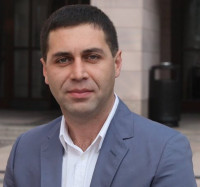Chronic & Non Communicable Diseases
Healthcare Systems
Public Health & Health Policy
Chronic Pain & Musculoskeletal Disorders
Stroke & Cardiovascular Diseases
Metabolic Health, Diabetes & Obesity
AXA Awards
Turkey
2016.09.30
Finding the best way to organize chronic care management to improve health while containing costs
Tackling the issue at different levels to understand the care system
« The existing research on chronic care management models are usually conceptual or they focus on the results of one case study in particular », reports Prof. Evrim Günes. « What is missing is a general model, like the ones widely applied in analyzing production or service systems, that will enable testing the performance of a similar system in different scenarios ». To create such models for chronic care management, the study will tackle the issue at different levels and with an interdisciplinary approach. At the individual level, patients’ and physicians’ behaviors will be investigated to understand their impact. At the healthcare system and care provider level, alternative chronic care management systems will be developed and their performance will be investigated. At the health policy level, the incentive mechanisms for different care models will be studied in order to find the best fit for different health systems.
« Trends such as increasing data availability and use of technology to monitor personal health information can be considered as opportunities that can lead to innovative care models. Taking advantage of these opportunities, Prof. Evrim Günes intends to provide a tool capable of estimating future health states and behavior of patients as well as the load on health systems. Using modeling and analysis, her research will contribute to increasing our understanding of how best to organize for chronic care management depending on a number of parameters, including political and financial variables. Given the rapidity with which the burden of chronic diseases is currently increasing, her findings will provide invaluable insight for the future of health care systems.

Evrim Didem
GUNES
Institution
Koç University
Country
Turkey
Nationality
Turkish
Related articles
Healthcare Systems
Societal Challenges
Public Health & Health Policy
Demography
Social Cohesion & Community Building
Post-Doctoral Fellowship
Hungary
2012.11.30
Network of general practitioners and specialists: Profiting from the knowledge about their professional interaction
Read more

Ágnes
LUBLóY

